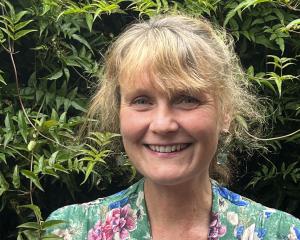Some Dunedin residents are drowning in unsustainable debt and it is hoped lenders will work with social service agencies to help break the shackles of ''enslaved'' borrowers, a Salvation Army counsellor says.
Salvation Army gambling service counsellor Chris Watkins invited social service groups and staff from 37 businesses in the Dunedin lending industry to a meeting in Dunedin on Tuesday.
Of 37 lending organisations invited, four attended - Bank of New Zealand, New Zealand Credit Union South, Chasmont Finance and Home Direct.
Mr Watkins said the meeting aimed to create a shared agenda between social services and organisations offering finance, loans and hire purchase to stop Dunedin residents becoming ''enslaved to unsustainable debt'', which leads to increased poverty and social hardship.
The social service groups consisted of problem gambling services, no-interest loan trusts, foodbank managers and budget advisers.
Dunedin Budget Advice Service Shirley Woodrow, speaking at the meeting, said about 80% of clients using the budgeting service had unsustainable debt.
Service assistant manager Andrew Henderson said Dunedin's social service agencies were seeing more employed people and beneficiaries with large debts to multiple lenders at interest rates with ''virtually impossible'' repayments.
Anglican Family Care budget adviser Cheryl Inwood, speaking at the meeting, said because of her clients' unsustainable debt, she was writing more insolvency applications than debt repayment plans.
''Insolvency becomes their only option - their only way out.''
Mr Watkins said the complexities of debt-related social problems in the city meant a collaborative response was urgently needed.
''In the face of people drowning in unsustainable debt, we now recognise that large-scale social change requires broad cross-sector co-ordination.''
The lenders spoke at the meeting, Mr Watkins said.
Chasmont Finance manager Mike Holley was aware of loan companies selling unsustainable loans, welcomed a community approach that educated people about the cost of borrowing and supported legislation to protect customers from irresponsible lending, Mr Watkins said.
Home Direct executive chairman Michael Wright said although responsible lending might affect the profits of some organisations, he agreed in the long run it would be better for business to refer vulnerable people to social services rather than give finance they could not afford, Mr Watkins said.
Responsible lending ideas, such as offering budget services to people wanting to access finance, were well received by lenders.
He hoped a closer working relationship between lenders and social services would lead to better protection of vulnerable people.
However, there was the danger if a responsible lender denied someone a loan they might go to a more disreputable lender instead, which could cause serious long-term problems.
Those attending the meeting committed themselves to responsible lending practices and would continue to meet to create a Dunedin-wide memorandum of understanding between lenders and social services.
Commerce and Consumer Affairs Minister Paul Goldsmith announced new consumer credit regulations on Thursday aimed at improving the information lenders gave borrowers.
The information would help borrowers compare the rates and fees offered by all lenders before borrowing money.
The changes would come into effect on June 6 and credit card statements would include a minimum repayment warning, stating how paying only the minimum amount each month would end up costing the consumer more.
Advertisement













